You don’t have to be superhuman to cross a continent by canoe. With the right mindset and some preparation, anyone with determination and a love of canoe tripping can cross continents by paddle power alone. Here are some tips from an epic expedition to help as you prepare for your own cross-country canoe trip.
How to complete a cross-country canoe trip
On April 18, 1995, Roman Rockliffe and I dipped our paddles into the Bay of Fundy. We had no support team and little funding; only a canoe and a dream.
In the following six months, we paddled up the Saint Lawrence, sloshed across the Great Lakes, hopped through the Boundary Waters, danced across Lake Winnipeg, toiled up the North Saskatchewan, grunted over the Rockies and then flew down the Fraser. On October 12 we splashed down in the Pacific Ocean and tasted its salty broth, bringing our great adventure to a close.
How did we pull off this continent-spanning journey without hitting the wall—or each other? Read on to find out how you can do it too.
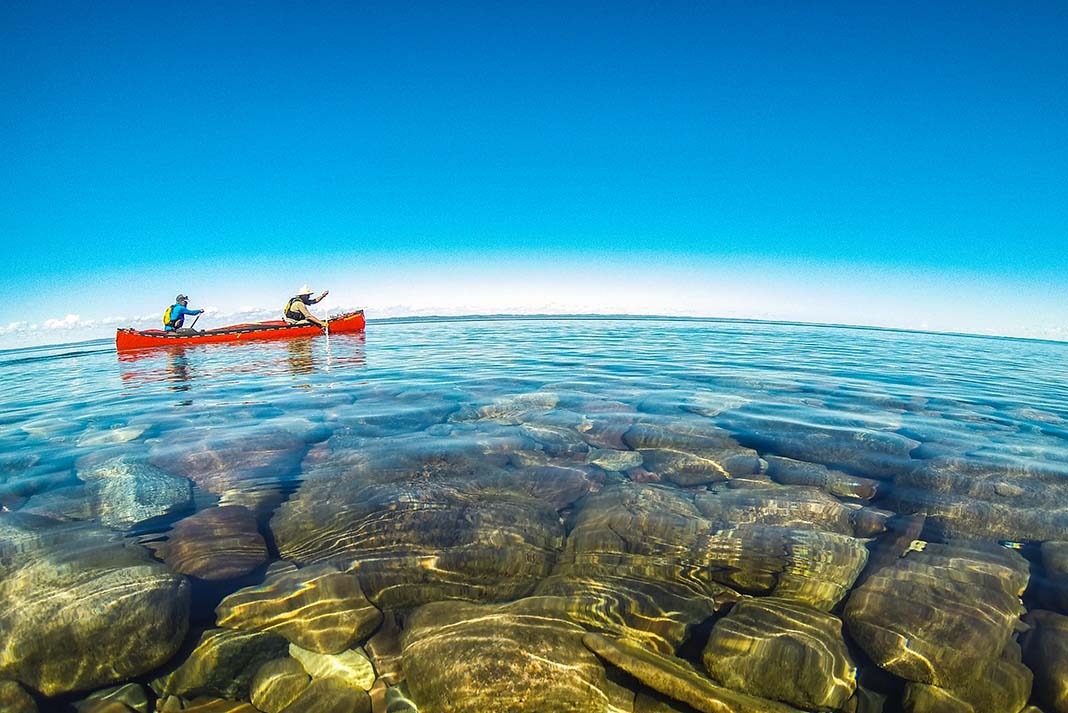
5 tips for a successful cross-country canoe trip
1 Pick the right partner
Some might think on a 180-day canoe trip you’d want your best friend or partner to be your companion. It could work, sure…or you could be at the throat of your dear friend and ruin that relationship forever.
In order to do all 5,000 miles from the East to West coasts, you have to be prepared to paddle and portage for 10 to 12 hours a day, every day. So pick out a determined individual who loves to trip and shares your dream.
2 Gear up
A 180-day trip requires the same gear as a weekend trip. All you essentially need is a canoe, tent, stove, pot set, paddles and basic clothing. Ah yes, one more thing…
When we got to the Rockies, we faced a 250-mile portage over the divide between the North Saskatchewan and the Fraser. Get a canoe cart for that section. We slugged through in seven mind-numbing days, pulling our canoe and gear along the Yellowhead Highway. I shudder to think of toting our load the same distance on our backs.
3 Fuel the engine
We discovered on our journey we could average about 40 miles per day on flat water, 55 miles per day downstream and 30 miles per day upstream. Portaging, of course, cut down these distances.
To keep the engine humming at this pace, we ate a very basic diet. It consisted of oatmeal for breakfast, peanut butter and jam on tortillas for lunch, and some facsimile of freeze-dried noodles and gravy for dinner. Energy bar breaks during mid-morning and mid-afternoon rounded out our Spartan diet.
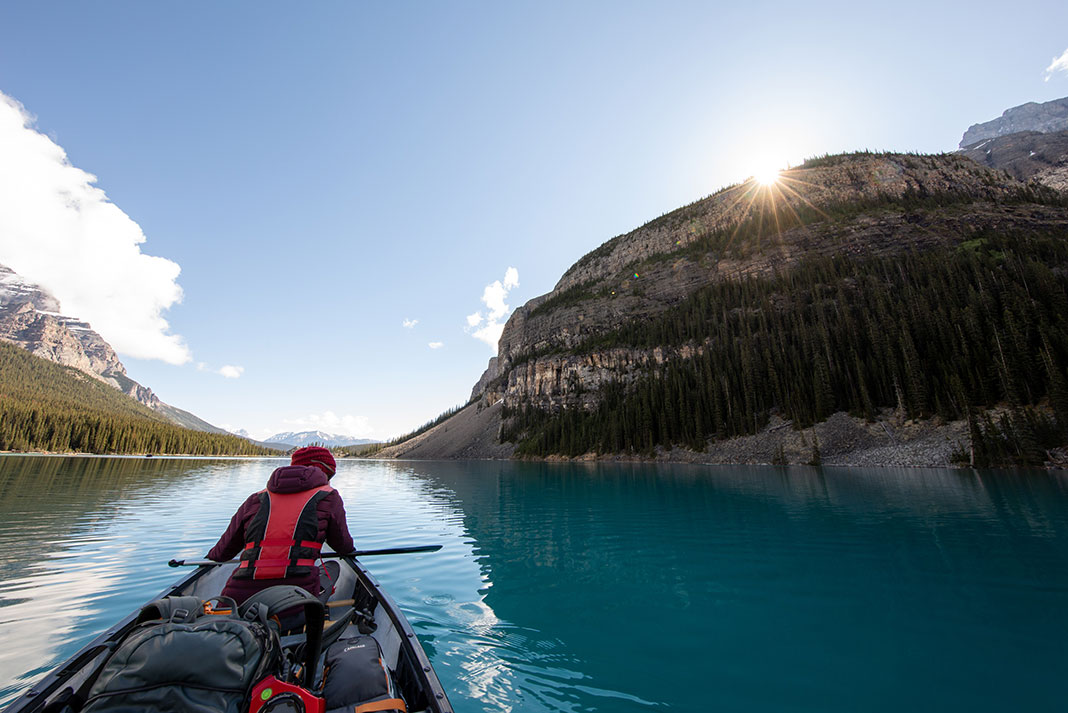
We sent our food ahead to towns along the route by mail before we left. Call ahead and talk to the person in charge of each respective post office so they’ll hold it beyond the usual 30 days before returning it to the sender.
Often you’ll be able to find a cheap buffet in the town where you pick up your cache. Go on in, then amaze, confound, and finally bring the poor proprietor to tears as you proceed to eat every last bit of food on the buffet table.
4 Get half a year off to go on a trip
Don’t let a job get in the way of a dream. Ask your superiors nicely. If they refuse, quit. There are thousands of jobs out there but there is only one trip of a lifetime. Let the canoe become your office and the tent your home. “Back in the days when I canoed across the country…” is going to sound better to your grandchildren than, “Back in the days when I processed insurance claims….”
5 Maintain an adventurous attitude
If on day 10 you’re hoping for day 180, the trip is as good as over. On long trips, the best mental approach is to savor every day, one paddle stroke at a time. You can never look ahead. Living in the moment is the way to go. Remind yourself that you will never pass this way again.
On a point-to-point canoe trip, every dip of the blade brings you in contact with different sights and sounds that are gone a moment later. When it’s pissing rain, you’re paddling upstream, the bugs are hammering you, and you miss your family and friends, think to yourself, “Where in the world would I rather be?” Inevitably, your answer will be, “Nowhere. Nowhere but here, on a canoe trip across a continent.”
This article originally appeared in Paddling Magazine Issue 65. Subscribe to Paddling Magazine’s print and digital editions here, or download the Paddling Magazine app and browse the digital archives here.
“I’m going up the country, babe don’t you wanna go/I’m going to some place where I’ve never been before/I’m going, I’m going where the water tastes like wine.” —Canned Heat | Feature photo: Frank Wolf



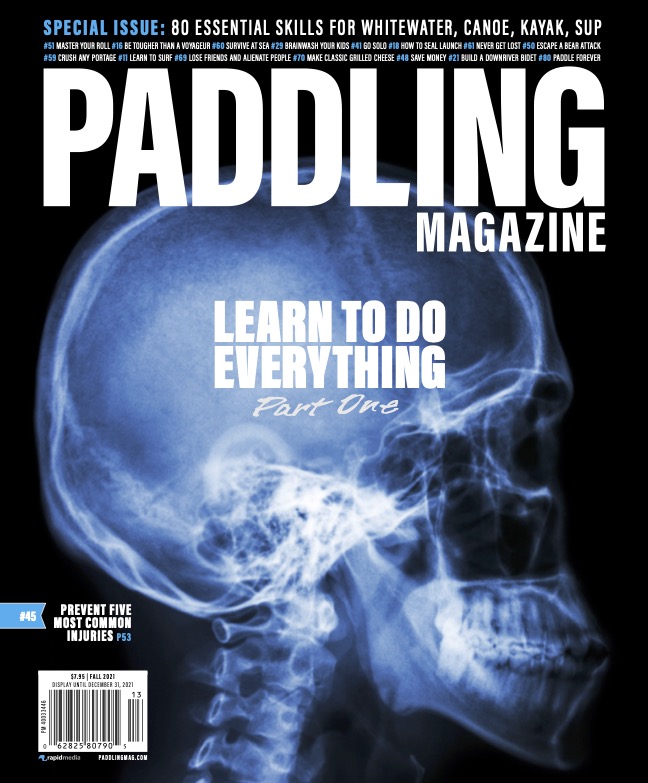
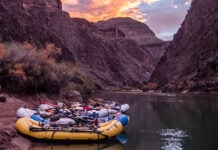
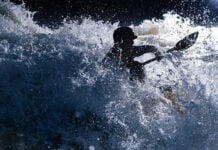
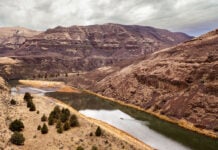
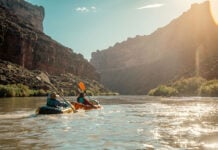
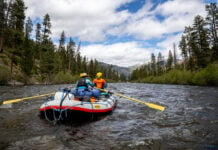

Great article Frank! I tried catalogueing all the expeditions that had gone Atlantic-Pacific or vice versa, since Sir Alexander Mackenzie of course. And came up with about 15, though some were only Rockies-To-Atlantic, or Pacific-To-Gulf. In Canada it includes P.A.C.T. in 2013, Mike Ranta, a crazy Repulse Bay to New Orleans 5,000-mile trip; and mostly in the States includes a 225-day tandem canoe trek from Astoria, OR-Savannah, GA…the 22 Rivers Exp. taking about 2 years, and that one from Pacific to the Gulf Jill Brown and Martin Trahan did about 2018.
You made good time on your trip. I can’t imagine descending the Fraser, but you two did…thought it was Class IV for 100 miles! I noticed no one’s paddled Pacific to Atlantic in a voyageur canoe in the U.S.